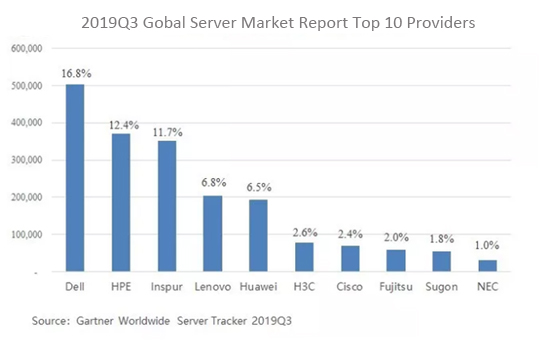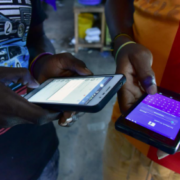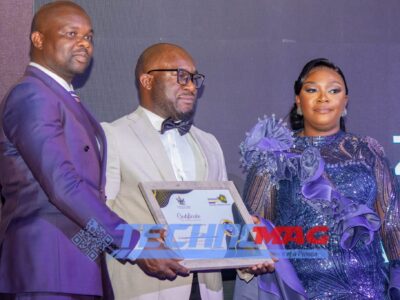The Zimbabwean Government recently commissioned and celebrated the National Data Center (NDC), a platform that is meant to serve the nation with platform as service, (PaaS) storage as a service (SaaS) and cloud computing services for government operations.
The choice for this partnership was none other than Inspur, a Chinese base giant in server deployment and currently the world’s third largest server provider.
President Mnangagwa said infrastructure such as the National Data Centre and the Zimbabwe High Performance Computing Centre established at the University of Zimbabwe, would go a long way towards capacitating institutions on adaptation of all sectors of the economy in line with the fourth industrial revolution.
Some experts have wondered if we are ready to utilize this million dollar investment, at the time government has failed to run basic ministry websites, online company registrations, online passport applications and basic services, yet the local servers are already under utilized.
“This is another SIRDC and High Performance Computing Centre to become a white elephant, all we do is to procure and never utilise” said an analyst
Other experts however have argued , insisting that this was the best deal in terms of scalability and thinking with the future in mind towards data processing, core location, and very fast and efficient systems to manage big data, with the advent of smart cities and safe cities in Harare, there was no substitute
The question remains, do we need such a huge data centre, how are we intending to utilize it, how much of privacy and secrecy act will it not contravene and more importantly how much did it cost us and the maintenance and licence issues in future
Inspur, whose full name is Inspur Group, is an information technology enterprise in mainland China focusing on cloud computing, big data, key application hosts, servers, storage, artificial intelligence and ERP.
On April 18, 2006, Inspur changed its English name from Langchao to Inspur, in a move intended to open up the international markets.
US Department of Defense names Huawei and Inspur in list of Chinese military-linked companies.
| U.S. chip giant Intel confirmed to Caixin that it has stopped supplying its products to Inspur, China’s largest maker of computer servers
An Intel representative described the move as temporary and estimated the suspension would last for about two weeks. Intel took the step to allow the company time to make adjustments to comply with relevant U.S. laws, the person said. On June 25, Inspur was named by the U.S. Defense Department as one of 20 Chinese firms that were owned or controlled by the Chinese military. In the technology sector, the companies on the list include state-owned enterprises China Electronics Technology Group, China Mobile, and China Telecommunications Corp, and nominally private businesses Hikvision, Huawei, Inspur, Panda Electronics Group, and Sugon. Blacklisted companies cannot buy from their U.S. suppliers unless those suppliers get special licenses from Washington. |
This was not the first time for the Zimbabwean government to work with this Chinese company, some years ago Chief Secretary to the president Misheck Sibanda led a delagation to China on fact finding mission and to clinch government deals.
This led to the birth of a huge Zimra scandal which saw Geshem Pasi quoting three times the price, a matter he is still appearing before the courts to answer
Through its parent company Welkin Import and Export, Righlux Services signed a $11 819 000 contract with Inspur Global for the supply, delivery and installation of hardware, equipment and software for the e-taxation system which was actually designed by Inspur Zimbabwe and Zimra ICT personnel.
Inspur directly supplied the system to Zimra, with a cost of $11 819 000-00, with Righlux Services acting as an intermediary yet the work was done by personnel within the country.
Zimra paid $23 763 780.65 to Righlux Services instead of $11 819 000 it should have paid had Pasi directly engaged Inspur.
After the State Procurement Board had given no objection for direct engagement, Pasi went on to sign a $32 649 939,97 contract with Righlux Services. The contract was not a direct engagement with Inspur as duly authorized.
The latest appearance of Inspur to Zimbabwean market however had no scandals in it, neither does it smell as one. Infact its revolutionary.
Zimbabwe Technology Company (ZITCO), the Herald reported. ZITCO is a joint venture by TelOne, Chinese company Inspur and a government-owned entity. It will put together computers, laptops, tablets and other devices. It is the first company in Zimbabwe to assemble computers locally and has the capacity to produce 150,000 gadgets annually at its plant in Msasa, Harare.
The server manufacturer has mostly managed to escape the ire of US officials, and has previously been left out of public discussions over Chinese companies with uncomfortable state ties. So far, it has avoided sanctions that would restrict its ability to use the US chips that power all of its server products.
Its site boast testimonials from senior officials at Nvidia, Cisco, Intel, and others. “Inspur is a fantastic company to work with… they’re critical to bringing the latest AI technologies to all of our customers,” data center head at Nvidia, Ian Buck, states in one of the videos
The pattern of the world’s first server camp is further consolidated. Data show that the top three Dell, HPE and Inspur shipments accounted for more than 10%, and the shipment share was 16.8%, 12.4% and 11.7%, respectively. Among them, Inspur achieved double-digit sales growth of 12.1%. In the Chinese market, Inspur has a market share of 38.7%, ranking first.

In the market of servers, there are famous global brands, such as Dell, HPE, Huawei, but the Inspur may be understated. However, now it’s the No.3 brands of producing servers in the world!
Networking powerhouse Cisco Systems announced a $100 million joint venture with China’s information technology firm Inspur Group on Wednesday during Chinese President Xi Jinping’s visit to a U.S.-China tech summit in Seattle.
The deal, which includes reselling Cisco networking gear and jointly developing a broad spectrum of software and hardware, is part of a $10 billion China investment initiative announced by the San Jose networking giant in June.
Inspur, headquartered in Jinan, China, will have a 51 percent stake in the new venture.











Comments